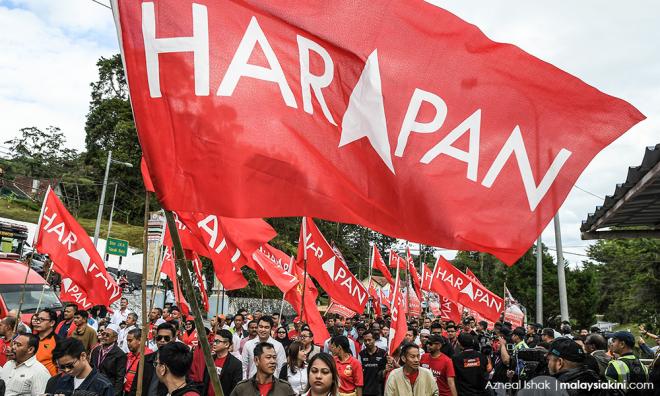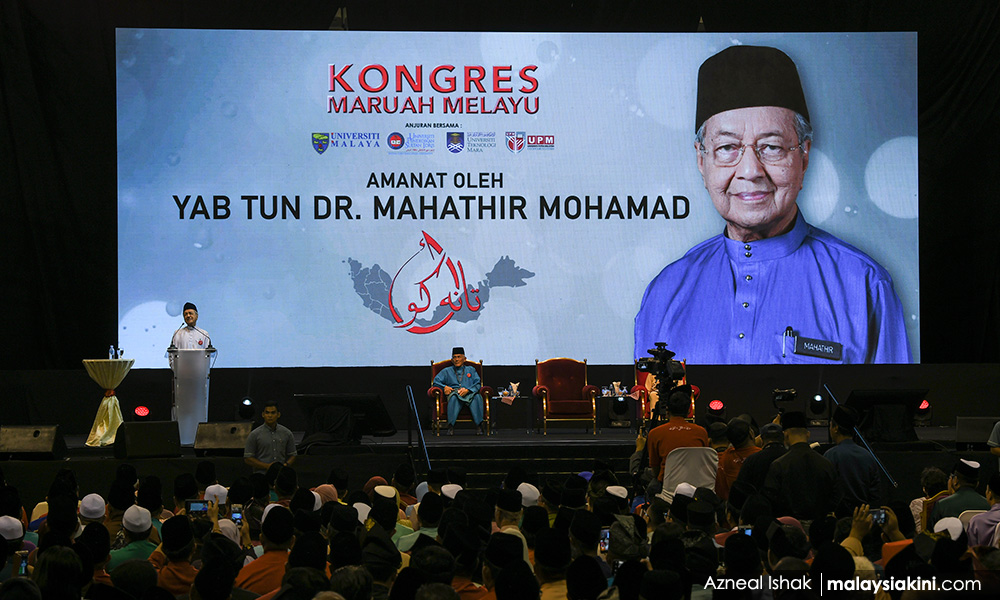Is Harapan a real alternative?

Since Pakatan Harapan that was made of Bersatu, PKR, DAP and Amanah won the 14th General Election, it was hoped that the coalition would provide a distinct political and economic alternative based on its manifesto.
Many discerning Malaysian, however, realised that its manifesto was formulated without a vision of a real and distinctive alternative to the prior BN-led government. It was more concerned with civil liberties, symptoms of corruption and tweaking of the economy rather than challenging the entire system of governance that was built on patronage, ethnic dominance and a materialistic world view.
There was no underlying framework in the coalition's manifesto that would be a real alternative to the authoritarian new-liberal economic behaviours of the BN politicians.
Promises were made and the people hoped that Dr Mahathir Mohamad was a changed man unlike his first stint as prime minister. He was trusted to usher in change with the so-called "New Malaysia" slogan. He basically failed because he was not the kind of leader that is qualified to lead on real reforms since his world view was rooted in conservatism and nationalism that was narrowed down to ethnic competition.
What was never understood by Harapan coalition leaders from the beginning was that Bersatu was not a real party that could be trusted for reforms since the only basis for its existence was to get rid of Najib’s kleptocratic government.

Bersatu’s governing ideology was incompatible to reforms that could have emerged from multi-ethnic solidarity. For its survival, the party has to show that it cared more for Malay rights. This is the reason that Mahathir attended the reductionist stereotyping Malay dignity congress when his priority should have been to bring about substantial reforms to the country.
The only reforms initiated by Harapan with some degree of success was in curbing corruption, where MACC's independence was felt to a certain extent and the voting age for youths was brought down from 21-years-old to 18, reducing broadband services by 49 percent through the introduction of National fiberisation and connectivity plan (NFCP), and efforts to bring reforms to labour laws. As for health reforms it was merely executed within the framework of the current healthcare system.
These efforts can be construed as functional reforms rather than reforms that were going to liberate the economy from neo-liberalism to a sustainable economy.
While functional reforms that were executed were commendable, what was missing from the Harapan government was a political and economic framework that would be clearly differentiated from the BN government. For example, having all ministries integrated with sustainable development goals and green vision would have been a clear contrast from the BN alternative.
The reason for the shortcoming was obvious. While parties that would desire some reform were from PKR and DAP, they were not part of the main decision-making process in critical ministries like the Agriculture, Education and Home ministries. The Environment Ministry which is critical in the era of the green economy was just regarded as a functional ministry rather than a reform ministry.
The Human Resources Ministry was not given a prominent and strategic role in human capital development There was also a contradiction where DAP as a state government in Penang was busy with a reclamation project that was against the principles of sustainable development.
It is now obvious that critical ministries were helmed by Bersatu, a party that was caught up more with trying to compete with UMNO on Malay rights in every situation. The very reason for Harapan's collapse was having Bersatu as its partner.

While the Harapan coalition was electorally successful in GE14, it was not sustainable in terms of governance due to the lack of a compelling coordinated vision to be a real alternative from a corrupt BN. The party-hopping and betrayal that resulted in the formation of the Perikatan Nasional government is an example of the type of unscrupulous people Harapan had in its government.
For a nation to move forward, it requires radical alternatives that distinguish itself from opponents rather than having similarities in forms and functions or having people that are unprincipled.
Therefore, it’s time that Harapan reinvent itself as a distinctive and radical alternative. Such an alternative should embrace a framework that is rooted in sustainable development goals and greening of the economy.
Taking the thoughts of Hegel, the 19th-century German philosopher who wrote on the concept of zeitgeist, the Covid-19 crisis has shown us that we are in the spirit of an age characterised by its own distinctive ideas, conventions and institutions. Can Harapan rise and meet this challenge by breaking away from its current thinking on politics and administration?
If they are not capable of changing, then it's time for Malaysians to work towards credible and progressive alternatives such as a strong labour and green movement to challenge the neo-liberal economic ideology of both Harapan and BN.
It’s time for Malaysians to work for real alternatives. - Mkini
✍ Credit given to the original owner of this post : ☕ Malaysians Must Know the TRUTH
🌐 Hit This Link To Find Out More On Their Articles...🏄🏻♀️ Enjoy Surfing!



















Post a Comment